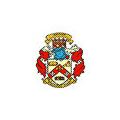Studies & Degrees in Chemistry
Choose where you would like to study Chemistry:
AlgeriaArgentinaArmeniaAustraliaAustriaAzerbaijanBangladeshBarbadosBelarusBelgiumBeninBermudaBosnia and HerzegovinaBotswanaBrazilBulgariaCambodiaCanadaCape VerdeCentral African RepublicChileChinaColombiaCosta RicaCubaCyprusCzech RepublicDenmarkEcuadorEgyptEl SalvadorEstoniaEthiopiaFijiFinlandFranceGermanyGhanaGreeceGuatemalaGuyanaHong KongHungaryIcelandIndiaIndonesiaIranIraqIrelandIsraelItalyJapanJordanKyrgyzstanLaoLebanonLesothoLithuaniaLuxembourgMadagascarMauritaniaMauritiusMexicoMozambiqueNamibiaNepalNetherlandsNew ZealandNicaraguaNigeriaOmanPakistanPalestinePeruPolandPortugalPuerto RicoQatarRomaniaRussiaSaudi ArabiaSingaporeSloveniaSouth AfricaSouth KoreaSpainSwazilandSwedenSwitzerlandTanzaniaThailandThe United KingdomThe United StatesTurkeyUgandaUkraineUnited Arab EmiratesUruguayUzbekistanVenezuelaVietnamVirgin Islands, U.S.ZimbabweChemistry Study Programs
Level: Undergraduate Bachelors
Location: Villanueva de la Cañada
Have you ever wondered what goes on inside a stick of dynamite before it explodes? Or how the body breaks down food and metabolizes it so that we can use it? These are the sort of phenomena studied by Chemists. Chemistry is a broad discipline examines the properties and characteristics of chemical substances, and applies knowledge of such substances in practical fields ranging from engineering to medicine. The 1st chemists were the ancient metallurgists of Greece and Egypt, who used something like the modern scientific method to find ways of improving the medals they worked with, and making them more useful.
Personal Qualities
- A strong scientific mind: ability to think problems out systematically, come up with a hypothesis, and find ways to test that hypothesis
- Diligence, patience, and conscientiousness – you will need to be very careful when working as a chemist!
- Fascination with matter and materials
- Willingness to spend long hours in the laboratory doing painstaking work without getting too bored
Because it is the field that bridges the gap between physics and other sciences such as biology and geology, chemistry is known as the “central science.” Areas of study within chemistry range from the very small scale to the very large scale, and often cover the overlap between chemistry and at least one other science. Examples include biochemistry, which examine the chemical reactions that go on inside the bodies of living organisms, and geochemistry, which is the study of the chemistry of our planet. In addition, some knowledge of chemistry will be essential to a course of study in other sciences, such as engineering, physics, and biology.
Career Options
Careers for students of chemistry fHimall along a spectrum: at one end are highly theoretical and academic jobs, such as teaching chemistry or working in a laboratory; at the other end are applied fields in a number of industries. Chemists are an integral part of the design and manufacturing process in numerous sectors, such as cosmetics, food and nutritional supplements, and of course pharmaceuticals. Positions at the applied end of the spectrum tend to be more lucrative, but people who are genuinely fascinated by chemistry itself often find them unsatisfying, because they are not free to study and think about whenever they want.




